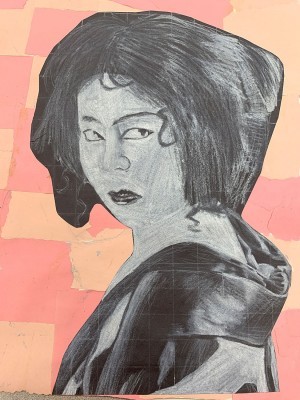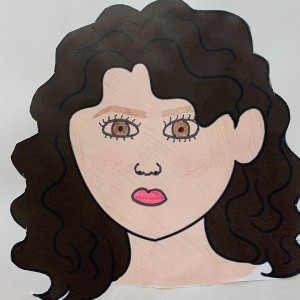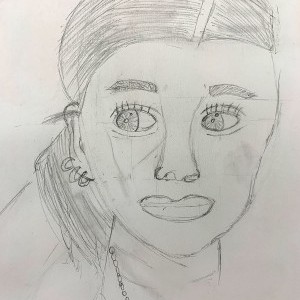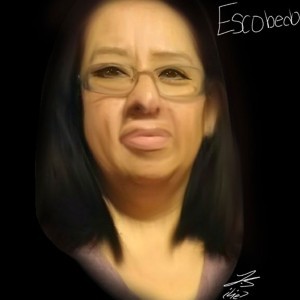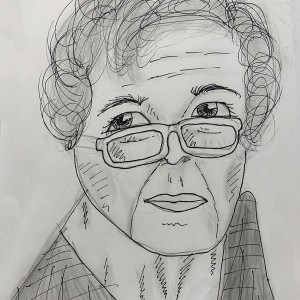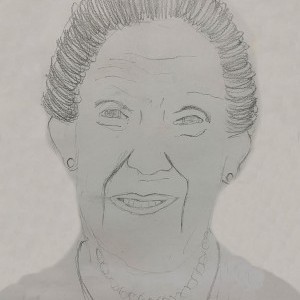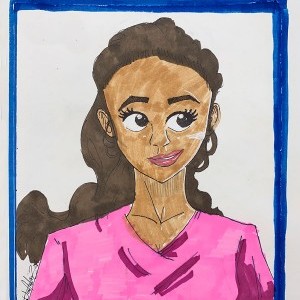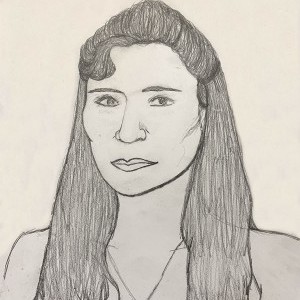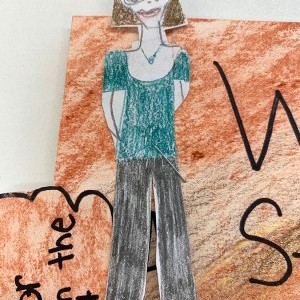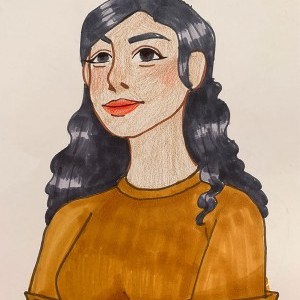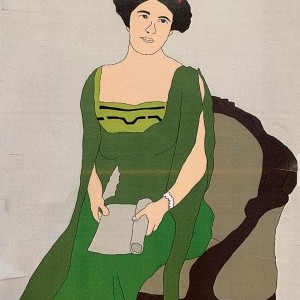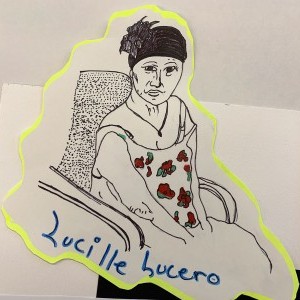Yaire Coria-Navarette
Kunsmiller Creative Arts Academy | Denver, CO | 11th Grade
Historical Figure I Admire
Komako Kimura
The 19th Amendment gave women the right to vote and was passed by Congress on June 4, 1919. It was later ratified on August 18, 1920. The 19th Amendment guarantees the right to vote for all American women. It took a long and difficult battle to reach this milestone; it took decades of unrest and protest to prevail and achieve this right. Women's suffrage is the right of women to vote in elections. Starting in the late 19th century, beyond women working for broad economic and political justice and social reforms, women tried to change voting laws that allowed them to vote.
Until World War II, Komako Kimura, also seen in American newspapers as Komaku Kimura or Komago Kimura, was a Japanese suffragist, singer, dancer, theater director, and magazine editor. Her literary and theater work influenced the rights of women in Japan and the Women's Suffrage Movement. In Japan, in the early 1920s, shortly after Kimura's ride, the Suffrage Movement peaked. However, Japanese women won universal voting rights only in 1945, but we´re moving too fast, let's start at the beginning of Komako Kimura ́s life.
Komako Kimura was born as the youngest of three sisters on July 29, 1887, in Tokyo. From a young age, she was trained in the traditional Japanese arts of dance and theater. At the age of three, she began learning Nihon Buyō and went on to train in Kabuki at the age of five. Her father, who worked as a chief clerk of a dealer fire-fighting pumps lost all of his money to a moneylender, had to flee to Taiwan to find work and left his family behind when Komako was only eight years old. Using her dance and theater training, she began supporting her family at a very young age by joining a Kumamoto touring theater, which is where her suffragist path began.
Later in Tokyo, she would run two theaters: the Kimura Komako Theater and the Tokiwaza Theater. She appeared as Shakespearean heroines on stage and in more than 500 plays throughout her career. She enjoyed the stage because it was one of the only fields in which women could thrive in a patriarchal society. As a stage performer, she could speak and associate with powerful men in a way wives could not.
In 1912, Komako Kimura founded the "Real New Women's Association" with two other women, Nishikawa Fumiko and Miyazaki Mitsuko. They went on to create a lecture series and a magazine, which were both called "The New True Women."
She began giving speeches; her first in 1913 was titled "Love and Women's Self-Realization." She campaigned for suffrage in a society that did not acknowledge women’s issues. In the first publication of her magazine "The New True Women," Komako explained that she did not just want to change the law and give men and women equal rights on paper; she called for women to be educated, strong, self-reliant and thoughtful feminists.
She came to America in 1917 to learn from the American women suffragists whom she greatly admired and to study their movement and methods. On October 23, 1917, she marched in one of the largest suffrage parades in New York City, along with thousands of other suffragists.
Inspirational Family Member
My Mother
Q: What was the world like politically/culturally when you were old enough to vote in Mexico?
A: Well, it wasn't as corrupted like it is now. Before there weren't many negotiations with drug traffickers, with the same police officers that work, with the government security. Before it was not bought with money, before the governments were more, I don't know, they supported more people. Although from what I see so far things have not changed, because since the PRI has ruled Mexico, it’s always been the same, just like the PAN match. We hope this new president today changes things a bit but I think it will be very difficult for him. Everyone thinks that the country is going to change overnight. When the others handed it over, ruined, thrown away, all the people wanted to take him down because he has not fulfilled what he promised. But like I always say, Rome wasn't done in one day, and if we don't do our part too, of course, Mexico will never settle. There will always be a lot of violence, there will always be a lot of progress, there will never be a good job, there will always be a lack of education for children. Why? Because of the lack of work, the lack of money and what the parents do is send their children to work for them, when they should be in school studying to become someone in life and be able to move Mexico forward.
C: Were you, or anyone in our family, ever denied the right to vote? If so, how? Why?
A: No, I was there for years ... well, I just voted once, and I did not vote for the party that my parents were in, they were from the national action party which is the PAN. In Mexico I voted for the person who I thought was right, who had good options to change the country, that had options for jobs, for schools, for studies. But it’s a shame that he has always won since I can remember. Until today he has always won the PRI or the PAN.
C: What's the PRI and the PAN?
A: The PRI has been the Institutional Revolutionary Party and the PAN is the National Action Party that has been the two most battled parties in Mexico for all the residents there because they always trust the PRI or the PAN that supposedly they are going to take the country forward. But as I said and as we have seen until now we have seen absolutely nothing. This president is from the PRD party that is the Revolutionary Democratic Party. The president from AMLO, López Obrador hopefully, pray god that he makes a change like he said, but we as well, have to help him too.
C: Do you think voting is important?
A: Of course! The votes matter and they count a lot especially when a country is so hurt with so much violence. We need those votes. Many people do not go out to vote because they’re too lazy to line up or because ̈Oh! Why should I vote, if he always wins every time! For what? There's no point!¨ No, if had the option to vote here, believe me that I would be one of the first to go out to vote, to share my proposals and to fight for my rights as well as I did when I voted in Mexico.
C: Do you have a question that you want answered, to put forth in the world?
A: Well, let us be aware a little of what is happening, I already know here in the United States, in Mexico, wherever it is, many things are happening. We have to be aware that things are happening. Not to blame life, nature, and that this world is going to end. I...don’t know...What is happening is because of us, because of so much racism…Because wherever racism is, either here or in Mexico, anywhere…Because of so much discrimination, because of language…Especially because there are no jobs. There are no jobs and our logic is that people have to steal to eat. Of course it is not a solution but there are people who do not have education and that is what they do. That's my point of view. Everyone thinks differently. I don't know the other people's thoughts but we should do our part. The people who are here in the United States can vote. That right that we can vote for elections is already isolated. Of course, of course, we are not very confident that our votes will be received by the party we are going to vote for.
C: Well thank you for your time, those are all the questions that I have.
A: Well, you're welcome. I just hope we can all help our president. We can’t hold him accountable for so many things that are happening. Because the presidency was stolen from him for so many years and they are only giving him a chance today. He is a person...I believe in him. If I believe in him I think Mexico will change. Of course, little by little and knowing how to respect his decisions…
Thank you for the interview.
What the Project Means to Me
Today, some of us take voting for granted, even with the idea of what our ancestors did in order to gain this right. For example, Komako Kimura went through a lot of difficulties and had to achieve significant accomplishments in order for people to turn and listen to her. While we do not know a lot about Komako Kimura, her courage continues to shine a light and is still important, even more than a century after she joined the march and the movement.
Explore the Archive
More From This Class
Click on the thumbnails below to view each student's work.Deadline Extended
There's still time to join Women Leading the Way.
Become a part of our storytelling archive. Enroll your class today.
Join the Project

